Written by Drew Redd. Mina Draskovic, B.Psy., reviewed this content for accuracy.
Person-centered therapy (Rogerian therapy) places you at the center of your recovery journey. It helps you rebuild trust in yourself, process difficult emotions that contribute to substance use, and discover your path to sustainable sobriety.
The effectiveness of this approach is backed by a 2022 study by Sohal and Murphy. They concluded that person-centered therapy improved overall well-being and reduced psychological distress in participants with co-occurring addictions.
At Ardu, we provide a judgment-free environment to address substance use disorder (SUD) and mental health challenges. Our dual diagnosis treatment helps you build self-understanding and develop lasting recovery solutions.
Person-centered therapy, or client-centered therapy, is a form of psychotherapy that recognizes you as the expert in your life experiences. Unlike therapeutic methods where the therapist directs the process, person-centered therapy utilizes your natural capacity for growth, healing, and finding your solutions to addiction recovery, emotional challenges, and mental health concerns. It’s a collaborative partnership where the therapist creates the conditions for your natural healing process.
In addiction recovery and mental health treatment, person-focused therapy empowers you to reconnect with your inner wisdom and make meaningful changes that align with your authentic self. This approach acknowledges that addiction and mental health challenges are part of your story, but they don’t define who you are or your potential for growth and recovery.
Addiction and mental health issues often go hand in hand. Our person-centered approach to dual diagnosis provides a judgment-free environment where you can explore both challenges simultaneously and develop a deeper understanding of how they interact and influence each other.
As part of this holistic approach, we offer family therapy sessions that help heal relationships, improve communication, and build a stronger support system for your recovery journey.
Person-centered therapy is based on several principles that guide the therapeutic process and create the conditions for personal growth, healing, and positive change in addiction recovery and mental health treatment.
The six main concepts of individualistic therapy are:
Whether you’re dealing with alcohol use disorder, substance abuse, or co-occurring mental health challenges, person-centered therapy helps you build self-trust and awareness for lasting recovery.
Contact us today to learn how our person-centered approach to dual diagnosis treatment sets you up for a successful recovery.
The principles of person-centered counseling come to life through specific therapeutic techniques. These practical methods create an environment where real change happens. Here are the key techniques our therapists use to support your recovery journey:
The therapist demonstrates complete attention to your words and underlying emotions. They employ thoughtful body language, mindful eye contact, and genuine presence. Deep engagement makes you feel understood and builds the trust needed for therapeutic growth.
In addiction recovery, feeling heard often marks the first step toward healing past trauma and exploring underlying causes of substance use.
By carefully mirroring back the content and emotions of what you’ve shared, your therapist helps you gain new perspectives on your experiences. This technique goes beyond simple repetition; it helps you hear your own story in a new way and often leads to deeper insights about your recovery journey. Through skilled reflection, you can better understand patterns in your behavior and emotional responses that may influence your substance use and mental health.
Rather than asking questions that lead to simple yes or no answers, your therapist uses thoughtful inquiries that encourage deeper exploration of your experiences. This approach empowers you to guide your therapeutic journey and discover solutions that emerge from your unique understanding.
Open-ended questions help you explore the complex relationships between your thoughts, emotions, behaviors, and substance use in a way that promotes lasting insights.
Your therapist creates a safe space by acknowledging and accepting your feelings without judgment, normalizing your emotional experiences in recovery. Validation helps you process the shame, guilt, or other difficult emotions that often accompany addiction and mental health challenges.
Learning to stay connected with your current thoughts, feelings, and bodily sensations helps break the cycle of dwelling on past regrets or future anxieties. The focus on the present moment builds essential self-awareness and allows you to recognize the early warning signs of emotional distress.
By developing stronger present-moment awareness, you can make more conscious choices about your recovery and respond more effectively to challenges.
You learn to be comfortable with silence. Your therapist skillfully uses periods of silence to give you time to process emotions and experiences without rushing. Intentional pauses create space for deeper reflection and often lead to significant breakthroughs in therapy. They help you develop greater emotional resilience and self-awareness—important skills for long-term recovery.
Every individual’s recovery journey is unique. Client-centered therapy typically requires at least 15–20 sessions. The length of therapy depends on the complexity of addiction patterns, the presence of co-occurring mental health disorders, and individual response to treatment. Some people may need more time to work through complex trauma, while others might achieve their goals sooner.
Psychiatrists maintain that Rogerian therapy is a gradual process that helps you build a strong connection with your therapist as you develop deeper self-awareness. It’s not a quick fix; it takes time to create lasting positive changes and discover your path to healing.
At Ardu, we provide a safe, judgment-free environment where you can heal from substance use and trauma on your terms. Our experienced team is here to support your recovery journey with personalized individual counseling where you learn self-compassion techniques and develop a kinder relationship with yourself.
We know that recovery involves more than just addressing substance use; it’s about understanding yourself, healing emotional wounds, and developing new ways of coping with life’s challenges. Ardu combines traditional addiction treatment with a person-centered approach to create a comprehensive healing experience.
Our person-centered therapy forms the foundation of our treatment approach and creates a supportive environment where you can explore addiction and mental health challenges without judgment. Through this therapeutic relationship, you’ll discover your path to recovery and build the self-trust and awareness essential for lasting change.
Our integrated treatment program includes:
If you’re struggling with alcohol or drug addiction, reach out to Ardu today. Our team is here to help you begin your journey toward lasting recovery.

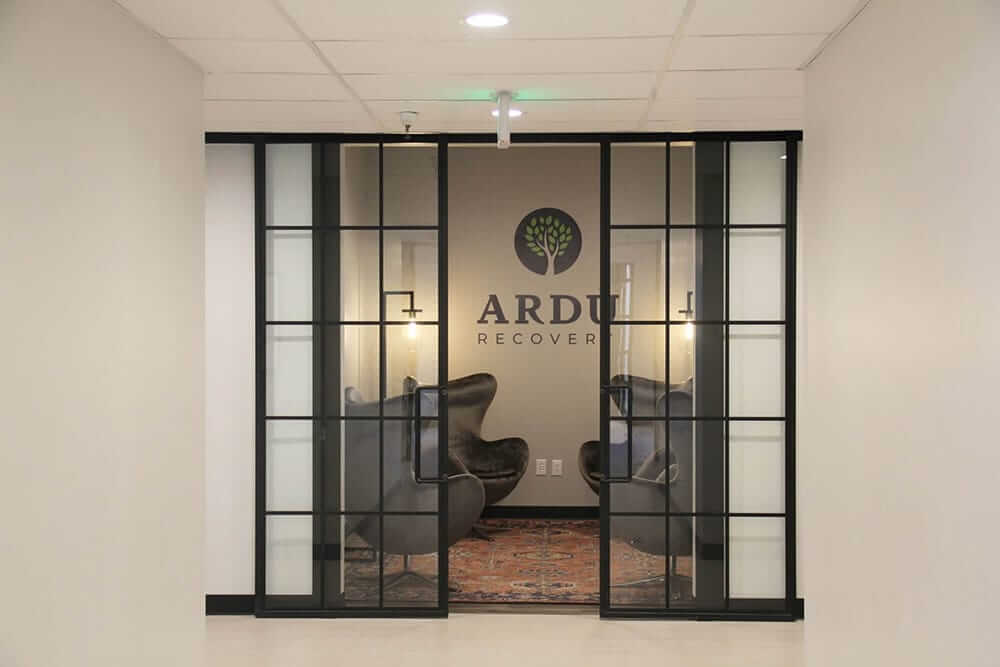
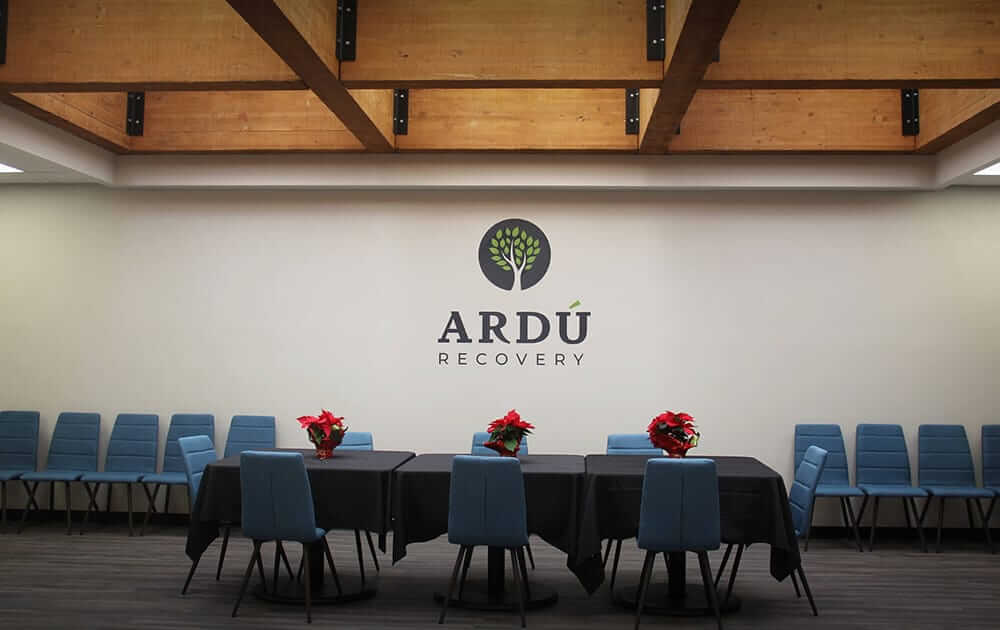
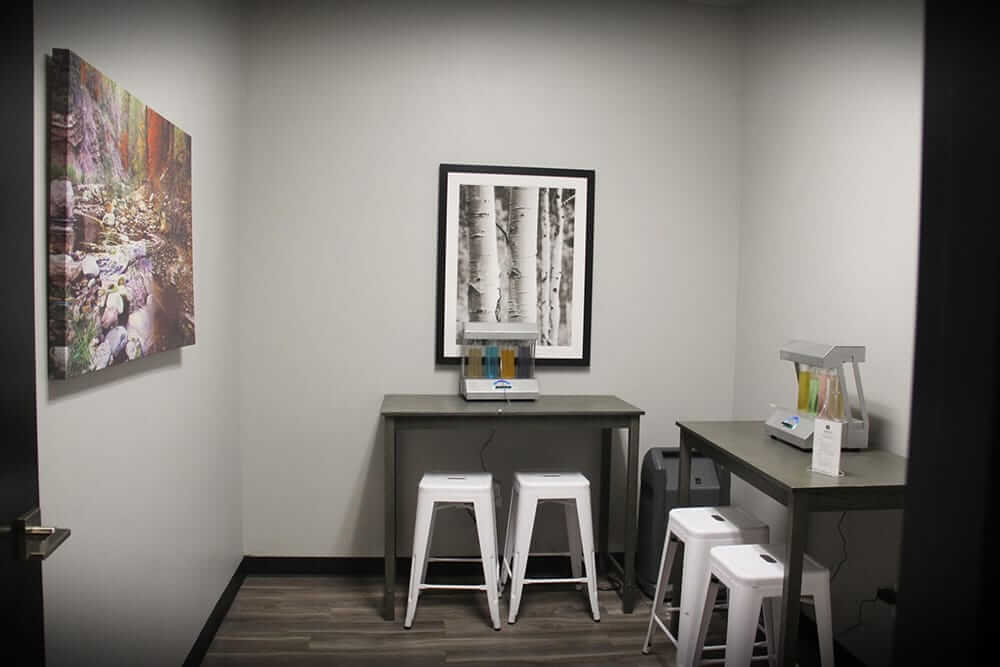


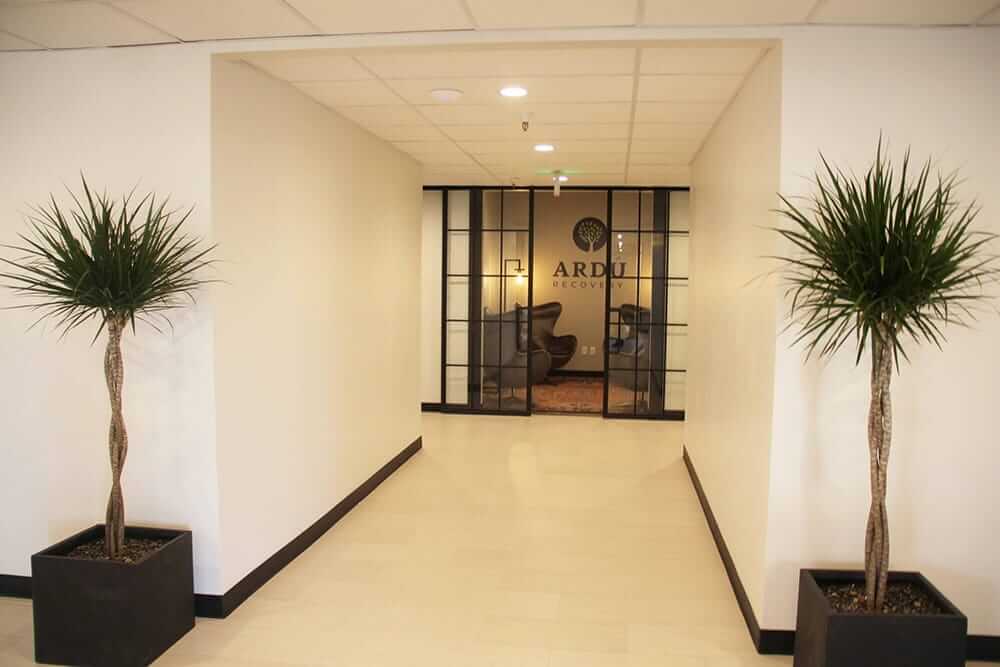
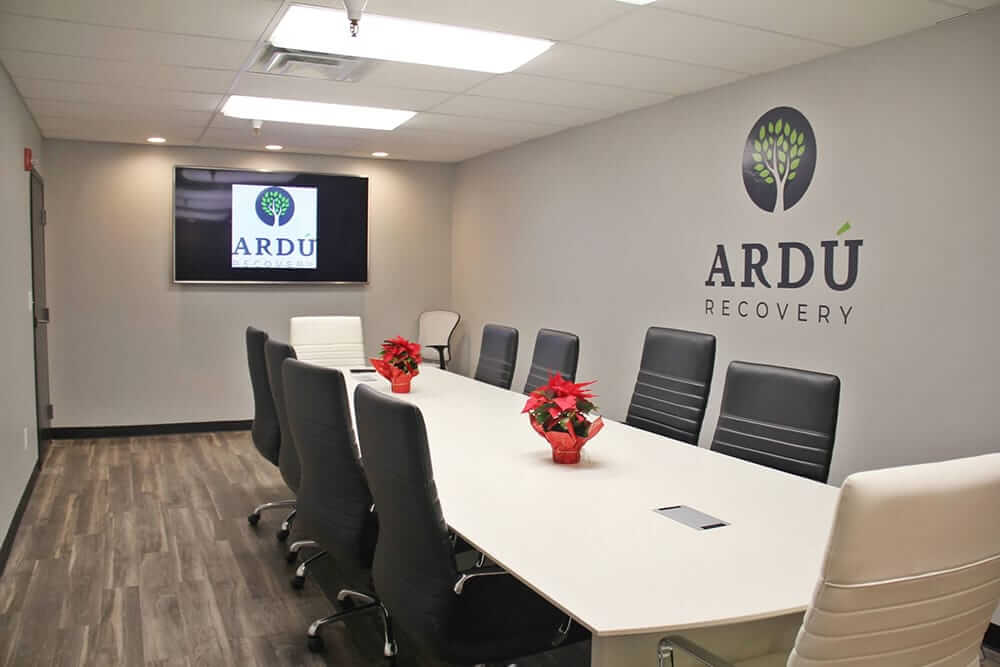
Take the first step toward substance dependence recovery with professional detox services and comprehensive treatment. Our person-centered approach to addiction treatment guarantees individual therapy sessions that address your immediate needs during detox and your long-term recovery goals.
Our medically supervised detox program provides safe, compassionate care during the challenging first phase of addiction recovery. We monitor you 24/7 throughout the detox process to manage withdrawal symptoms and keep you comfortable and safe while your body cleanses itself from substances. Once detox is complete, you’ll transition smoothly into our person-centered therapy program, where we address addiction and mental health challenges simultaneously through individualized treatment plans.
Our primary goal is to create a warm, accepting environment where you can safely begin your recovery journey. We offer evidence-based treatments and services to support your recovery, including:
To enroll, contact Ardu online or via phone at 801-872-8480.
Cognitive behavioral therapy (CBT) and person-centered therapy are both therapeutic approaches, but their methods and underlying philosophy are different.
In CBT, treatment follows a structured plan with specific goals and techniques, while person-centered therapy allows the therapeutic journey to unfold naturally based on your needs and pace. CBT focuses on current problems and solutions, while the person-centered approach explores deeper emotional experiences and personal growth through holistic healing.
Interpersonal therapy (IPT) is a type of therapy that focuses on improving interpersonal relationships and addressing social functioning to reduce psychological symptoms. Unlike person-centered therapy, which emphasizes self-discovery and personal growth, IPT targets relationship patterns, communication issues, and life transitions that contribute to mental health challenges.
IPT is effective for depression, anxiety, and eating disorders, working within a time-limited framework (typically 12–16 sessions). The treatment focuses on four main problem areas: grief, role transitions, interpersonal disputes, and interpersonal deficits. While person-centered therapy creates an open environment for exploration, IPT provides more structure and specific strategies for improving relationships, social support, and the overall quality of life.
Many psychiatrists and mental health professionals argue that person-centered therapy isn’t suitable for everyone and that it has “weaknesses.” A 1993 research article suggests that traditional person-centered therapy may be too passive. It relies too heavily on empathy and unconditional positive regard while placing excessive faith in the client’s natural capacity for self-healing.
Here are some potential limitations or “weaknesses” of client-centered therapy:
Many of these “weaknesses” are strengths for the right clients because they allow for deeper, more lasting change through genuine self-discovery and personal growth.
The empty chair technique is primarily associated with Gestalt therapy rather than person-focused therapy, but it illustrates a contrast in therapeutic approaches. This experiential method involves dialogue with an empty chair, imagining it occupied by someone significant or even aspects of yourself. The client speaks to the “empty chair” and then switches positions to respond from the other perspective.
While person-centered therapy generally doesn’t use such structured techniques, both approaches focus on present-moment awareness and authentic emotional expression. The main difference is that person-centered counseling lets such expressions emerge naturally rather than through specific exercises or interventions.
Questions should emerge from genuine curiosity and empathic understanding rather than following a predetermined format. Effective therapeutic questions might include:
These questions should arise organically from the therapeutic relationship rather than being imposed by the therapist.
Gestalt therapy is a holistic, experiential form of therapy that emphasizes present-moment awareness and the importance of the relationship between person and environment. It is a form of humanistic therapy, just like person-centered care, but Gestalt therapy is more directive and employs specific techniques to increase awareness and promote personal growth.
The main differences from person-focused therapy include:
Gestalt takes a more active role in directing the therapeutic process than person-centered therapy’s non-directive stance.
Person-centered therapy offers a holistic approach that can benefit a wide range of people, particularly those dealing with mood disorders, personality disorders, and other mental health issues. This type of individual psychotherapy is especially effective for people who:
The non-directive nature of this treatment process makes it particularly valuable for those who prefer exploring their journey to recovery without rigid structure or prescribed solutions.
Rational emotive behavior therapy (REBT) and person-centered therapy have different approaches and underlying philosophies. They both aim to improve mental health care, but REBT is highly directive and focuses on identifying and challenging irrational beliefs through specific techniques and homework assignments. The therapist actively guides the treatment goals and process.
Person-centered counseling emphasizes the client’s natural capacity for growth through the therapeutic relationship. The person-centered therapist creates a supportive environment through empathic understanding and unconditional acceptance, allowing clients to discover their own solutions. REBT focuses on changing thought patterns, while person-centered therapy trusts in the client’s innate wisdom to guide their healing journey.
The opposite of person-centered therapy would be highly directive types of therapy that emphasize therapist expertise and structured interventions over client self-direction. Behavioral therapies, for example, focus on specific problematic behaviors and use predetermined techniques to modify them.
While person-centered care emphasizes natural growth through individual counseling and empathic understanding, directive approaches might include:
These approaches position the therapist as an expert who diagnoses issues and prescribes solutions.
Sohal, A., & Murphy, D. (2023). A longitudinal analysis of person-centred therapy with suicidal clients. Counselling and Psychotherapy Research, 23(1), 20-30. https://doi.org/10.1002/capr.12588
Cloninger, C. R., & Cloninger, K. M. (2011). Person-centered Therapeutics. International Journal of Person Centered Medicine, 1(1), 43. https://doi.org/10.5750/ijpcm.v1i1.21
Quinn, R. H. (1993). Confronting Carl Rogers. Journal of Humanistic Psychology. https://doi.org/10.1177/0022167893331002
Motivational interviewing services at Ardu
Learn about the alcohol recovery process
Post-traumatic stress disorder dual diagnosis treatment
Mindfulness therapy for stress reduction
How to stage an intervention for your loved one